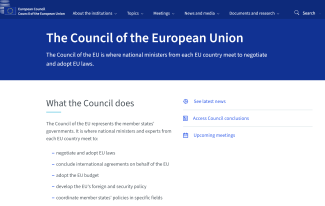Reducing the availability of illegal substances through law enforcement and regulation.
Supply Control
Drug Supply Reduction: an Overview of EU Policies and Measures
Illicit drug markets operate through a complex, global chain—from production and trafficking to consumption and the profits that fuel organised crime. At every stage, these activities compromise the health and security of countries...
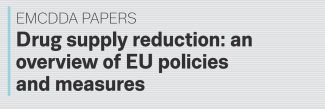
Paris Pact - Phase IV and the Vienna Declaration
Since 2003, the Paris Pact Initiative (PPI) has grown into a key international coalition, now comprising 58 partner countries and 22 organisations, including UNODC. It provides a vital platform for consensus-building, linking high-level...
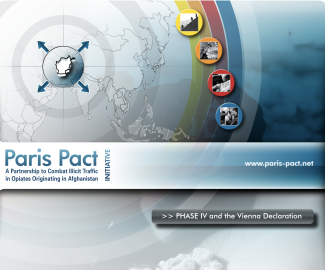
The Global SMART Programme — A Strategic Response to the Synthetic Drug Problem, United Nations, New York
The global market for synthetic drugs has grown rapidly in recent years, with amphetamine-type stimulants (ATS) and new psychoactive substances (NPS) becoming a significant concern worldwide. ATS, which include amphetamine, methamphetamine...
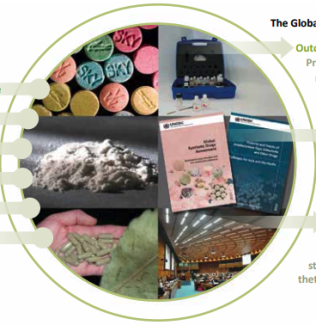
The Future of Drug Supply Monitoring in Europe
Understanding drug markets in Europe requires monitoring both supply and demand. Traditionally, this has relied on data such as drug seizures, prices, purity and offences. However, because drug markets operate illicitly, gathering and...
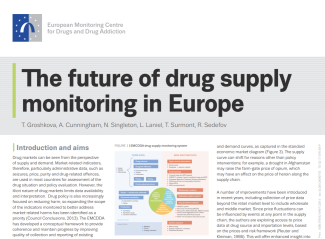
UNODC (2011a), The Paris Pact Initiative — Evaluating the Achievements: From Partnership to Policy, to Action
The Paris Pact Initiative (PPI), launched in 2003, is one of the leading international coalitions tackling the illicit trafficking of opiates from Afghanistan. Bringing together 58 countries and 23 organisations, including UNODC, it serves...
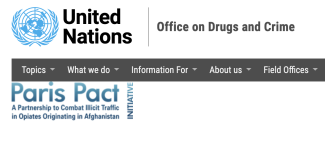
UNODC-WCO (2015), Container Control Programme — Annual Report
In 2015, the UNODC-WCO Container Control Programme (CCP) expanded its reach with new Port Control Units (PCUs) across Asia and Europe, including in Bangladesh, Bosnia and Herzegovina, Georgia, Jordan, Nepal, Thailand and Viet Nam, as well...
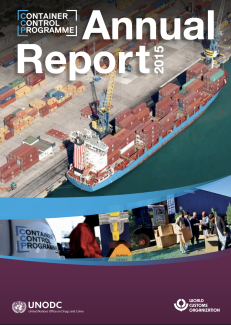
UNODC (2014a), Global SMART Update
The rapid rise of synthetic drugs has become one of the world’s most pressing drug-related challenges. After cannabis, amphetamine-type stimulants (ATS) are the most widely used drugs globally, now surpassing cocaine and heroin. Alongside...
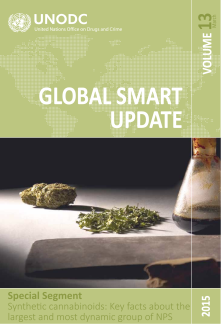
UNODC (2012), In-Depth Evaluation of Paris Pact Phase III, United Nations, New York
The evaluation of Phase III of the Paris Pact Initiative (2010–2012), supported by UNODC’s Project GLO K31, examined how effectively this global partnership has addressed the trafficking and consumption of opiates, particularly those...
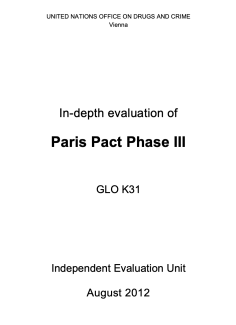
International Narcotics Control Board (INCB), Precursors and chemicals frequently used in the illicit manufacture of narcotic drugs and psychotropic substances, United Nations, New York
The International Narcotics Control Board’s 2015 report on precursors highlights global efforts to stop chemicals being diverted into the illicit manufacture of drugs. It points to successes achieved through international cooperation...
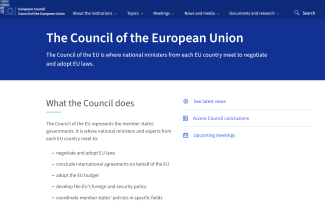
Council of the European Union (2013d), The Council of the European Union
The Council of the European Union is the forum where national ministers from all EU countries come together to make decisions that shape Europe. It is responsible for negotiating and adopting EU laws, approving the budget, concluding...
